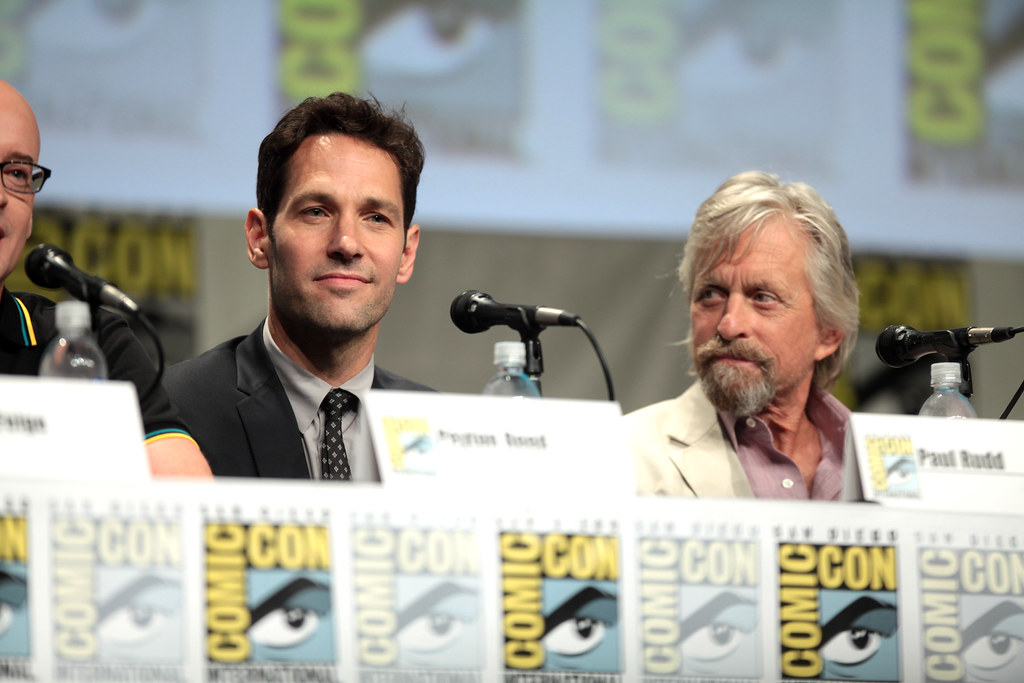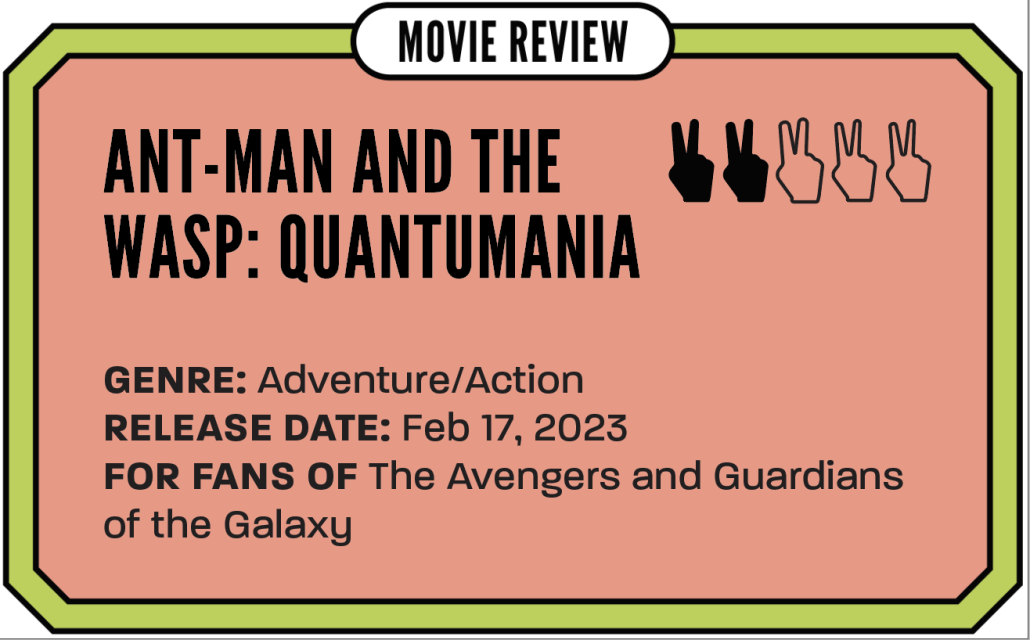MCU fatigue only grows in ‘Ant-Man’ sequel

(Gage Skidmore | Wikimedia Commons)

Martin Scorsese infamously refuses to call Marvel movies real “cinema,” instead choosing to describe them as “theme parks.” Despite how you feel about defining “cinema,” “theme park” might be too generous a description for this sheer sedative of a film, where the only thing keeping you from leaving is the potentially important setup of what’s next to come in the Marvel Cinematic Universe. Looking ahead has been the key to Marvel’s success both critically and commercially for more than a decade, but it isn’t the reason why people love it.
There’s a difference between an MCU movie being particularly excited about because of how it may factor into the overarching plot or because you are especially invested in certain characters (any Wanda fans in the house?). In either case, you might feel the need to keep up with the rest of the movies so that you don’t miss out on important plot threads, essentially the genesis of this franchise’s undoubtable financial success.
If you do choose to go see “Quantumania” for the film itself, Jonathan Majors, Paul Rudd and Michelle Pfeiffer are the only real reasons it’s worth sitting through. Though her role as Janet Van Dyne is a little bland and underwritten, Pfeiffer is absolutely game and fun to watch, while Majors fully commits to his role as Kang the Conqueror. Rudd still finds a way to shine in the role despite being sidelined in his own movie, a fate shared by co-star Evangeline Lilly, who is not only disappointingly underutilized but missing from large chunks of the film at a time.
The Marvel villain problem, in which great actors are subjected to weak villain roles that have relatively no consequence other than to serve the protagonists’ motivations, is stronger than ever here. Apart from some anomalies, Majors’ Kang, the new Thanos-like big bad for the cinematic universe, continues this MCU trend. The main issue here is that Kang’s motivations are both so broadly defined that it is hard for the audience to really understand where he is coming from and why they should care.
Although a major complaint with the first two “Ant-Man” movies is that they feel too small — no pun intended — at least the stakes were emotional, thanks to the focus on the father-daughter relationship between Rudd’s Scott Lang and his daughter, Cassie (Abby Ryder Fortson). Here, the film’s few attempts to create tension and heighten the drama feel derivative at best, and completely contrived at worst. The third act is like a low-rent “Star Wars: The Rise of Skywalker,” if that is even possible.
The film’s action sequences are poorly executed and choreographed. None of the luster from the Russo brothers’ Marvel outings is present, making it hard to find anything to get excited about. Apart from some obvious green screen moments, the visual effects are surprisingly not bad. Although the character of M.O.D.O.K. feels like a giant “f-you” from the underpaid visual effects artists, it’s probably the best thing to come out of the past few Marvel movies. This is because it leans into its own campiness, a quality which “Doctor Strange in the Multiverse of Madness” doubled down on to the tune of $955 million worldwide.
Ultimately, the biggest takeaway from this film is how it continues to show that Marvel is at the crux of a monumental identity crisis. Although Marvel’s Kevin Feige promises all of this will pay off — which feels less and less like a reality nearly 20 projects into Phases 4 and 5 — Marvel has really struggled with what to make of itself post “Avengers: Endgame.” The issues that were already there, such as the incessant need to make everything funny and undercutting the drama, have been magnified. By trying to tackle too many new stories and characters too fast, new issues have arisen.
For one, the need to feed the beast that is Disney+ has forced Marvel to produce unprecedented levels of content. The plethora of talent necessary for this dilutes Feige’s sole creative clarity, causing each and every project to feel insignificant within the larger story. The overarching storyline has always been the cause for the MCU’s consistent success from project to project. Yet, even the most hardcore fans have been overwhelmed by the sheer quantity of movies and TV series that they must consume to keep up with the ever-expanding MCU.
At this time, films are going into production without entire third acts, visual effects are completed at the very last minute and the creative weight is shifted from Feige to underqualified writers who have varying visions of the Multiverse, leading to films that lack structure and feel disconnected from the main story.
The audience’s habit of feeling the need to watch every project to keep up with the main story is essential for the long-running franchise’s consistently strong box office performance. It’s quite telling that Feige felt the need to announce last week that the studio would be scaling back to only two Disney+ shows this year — “Secret Invasion” and the much-anticipated second season of “Loki.” In addition to giving audiences breathing room, this will allow more time to polish and give attention to each and every project.
What undermines “Quantumania” as a film is that it’s sticking to the same worn-down formula, short of imagination and ingenuity. It lacks an overall conviction in its large-scale storytelling that has come to define those pre-“Endgame” films. With the formula intact, the MCU has become a lazy, docile entity content with being safe. With success a guarantee, the standard for quality is no longer there, and the storytelling is as a result allowed to be safe and uninspired.
What these latest films fail to realize is not just the connected nature of the earlier Marvel stories, which “Quantumania” at least attempts to accomplish after the relative stagnance felt in the past few MCU projects, but rather their indispensable joy and creativity. That was the genius of those first Marvel movies; the sense of interconnectedness was there in the episodic storytelling, but there was still always a focus on the characters and making sure each and every film — apart from “Thor: The Dark World,” of course — was at least an enjoyable time, and at best an experience worth treasuring.
Almost everybody remembers seeing “Iron Man” or “Guardians of the Galaxy” for the first time in theaters, but will anyone remember “Ant-Man and the Wasp: Quantumania”? That’s a question Feige and Marvel will need to ask themselves before work starts on the next 10 movies and Disney+ shows (the ones that aren’t already deep into production or post-production, that is).

